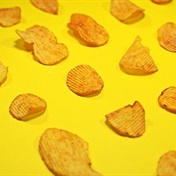We all know that taking in fewer kilojoules will result in weight loss – so yes, a high-fat, high-protein, low-carbohydrate diet will give you weight loss. But so does a low-fat diet.
In fact, following any diet that decreases kilojoule intake will result in weight loss in the short term. Yet we know many people revert to their old eating habits, and regain the lost weight, plus more.
Read: Low fat vs low carb diet - which is the best?
We do support Prof Tim Noakes’s argument in part; however, we also support the arguments presented by some of Cape Town’s cardiologists, noting that both messages hold merit. At the same time we as the HSF have the responsibility to present facts and correct misconceptions evident from comments coming from the public.
Type of fat is important: The HSF does not say "no" to fats! But the message is more nuanced. For good health we need some fat in our diet. The real issue is the quality of fats we eat, against the total kilojoules in the diet.
While studies are unclear about the effect of saturated fats on health, there is solid proof that replacing saturated fats with unsaturated fats will improve cholesterol levels, reduce heart disease risk and prevent insulin resistance, a precursor of diabetes.
Eating good fats in place of saturated fats lowers the risk of heart disease. Replacement is key.
Read: Understanding the difference between saturated and unsaturated fats
Very bad fats: We trust that Prof Noakes is not recommending that people increase their trans fat intake (this is a fat too!). We know that trans fats significantly increase the risk for cardiovascular disease (CVD) and so should be avoided.
Trans fats have a worse effect on cholesterol levels than saturated fats, and they also fire inflammation - that Prof Noakes quite rightly refers to. These raise the risk of CVD and diabetes.
This type of fat is commonly found in reused frying oil (as found in restaurants or fast food outlets), in commercially fried and baked foods, processed snack foods and hard margarines.
The traditional Mediterranean diet is an example of a diet that is relatively high in fat, yet lowers the risk of CVD and diabetes. Most of the fat in this diet is from plant sources (olive oil, nuts, seeds – also recommended by Prof Noakes), but saturated fat content is low.
The diet is also rich in vegetables, fruits, beans, nuts, wholegrains, and some cheese and yoghurt. In comparison, the westernised diet that we advise against, is high in kilojoules, bad fat, sugar and salt, and is low in fruits and vegetables, wholegrains and healthy fats.
Read: A study looks at the The Tim Noakes diet vs a balanced diet
Not all carbohydrates are bad: There is no doubt that unrefined or wholegrain carbohydrates are healthy and protective against certain diseases including cancer. Refined carbohydrates on the other hand should be treated with caution. If there is one thing that everyone agrees on, it is this.
Read: Carb and sugar addiction fuelling South Africa's obesity epidemic
The real issue is the abundance of refined carbohydrates found in most everyday foods we eat. These, together with hidden sugars and fats, are the traps found in most processed and convenience foods.
In reality, when people cut back on fat, they fill up on foods full of refined carbohydrates (e.g. white bread, sugary drinks) or use fat-free products without the healthy fats and which contain hidden sugars.
The result is an increased risk for obesity, CVD and diabetes, which is why we recommend replacing foods high in bad fats with foods high in good fats - not with refined carbohydrates.
Read: How a low carb diet can help obese diabetics
Then there is matter of over-simplifying the causes of heart disease. It is common knowledge that the causes of heart disease are multi-factorial, and are not exclusive to only blood cholesterol and a high fat diet as claimed.
In fact, overweight and obesity are one of the risk factors. Maintaining a healthy weight requires much more than a diet. It means having to balance your energy intake with energy used through exercise.
Despite Prof Noakes advocating exercise together with his diet, the exercise message gets lost in the debate – which is a danger.
Read: Health24's DietDoc takes a closer look at Banting vs a balanced diet
Perhaps the recent debate will feed your need to believe that you can indulge in butter, bacon, biltong and boerewors. Unfortunately, this cannot be without moderation, nor can it be in isolation of all other factors.
As the Harvard School of Public Health reminds us, "looking at a single nutrient in isolation cannot tell us the whole story about a person’s heart disease risk. It is important to remember that people eat food not nutrients and it is eaten in an overall dietary pattern".
To ignore other contributing factors, behaviours and living context that lead to heart disease would be erroneous and dangerous.
- Dr Vash Mungal-Singh, Chief Executive Officer, Heart and Stroke Foundation SA
Read more:
Top 10 heart-smart foods
Tim Noakes: heart disease theory 'has failed'
Tim Noakes called a 'cholesterol denialist'
Tim Noakes: what users think
Cooking from the heart
Quiz: is your diet heart-healthy?
More on low carb diets
Mediterranean or carb free - which is best for your brain?
Watch: What you need to know about low-carb dieting
What Tim Noakes eats
Tim Noakes says SA's poor must forego the pap and eat offal
10 Golden rules of Banting




 Publications
Publications
 Partners
Partners















